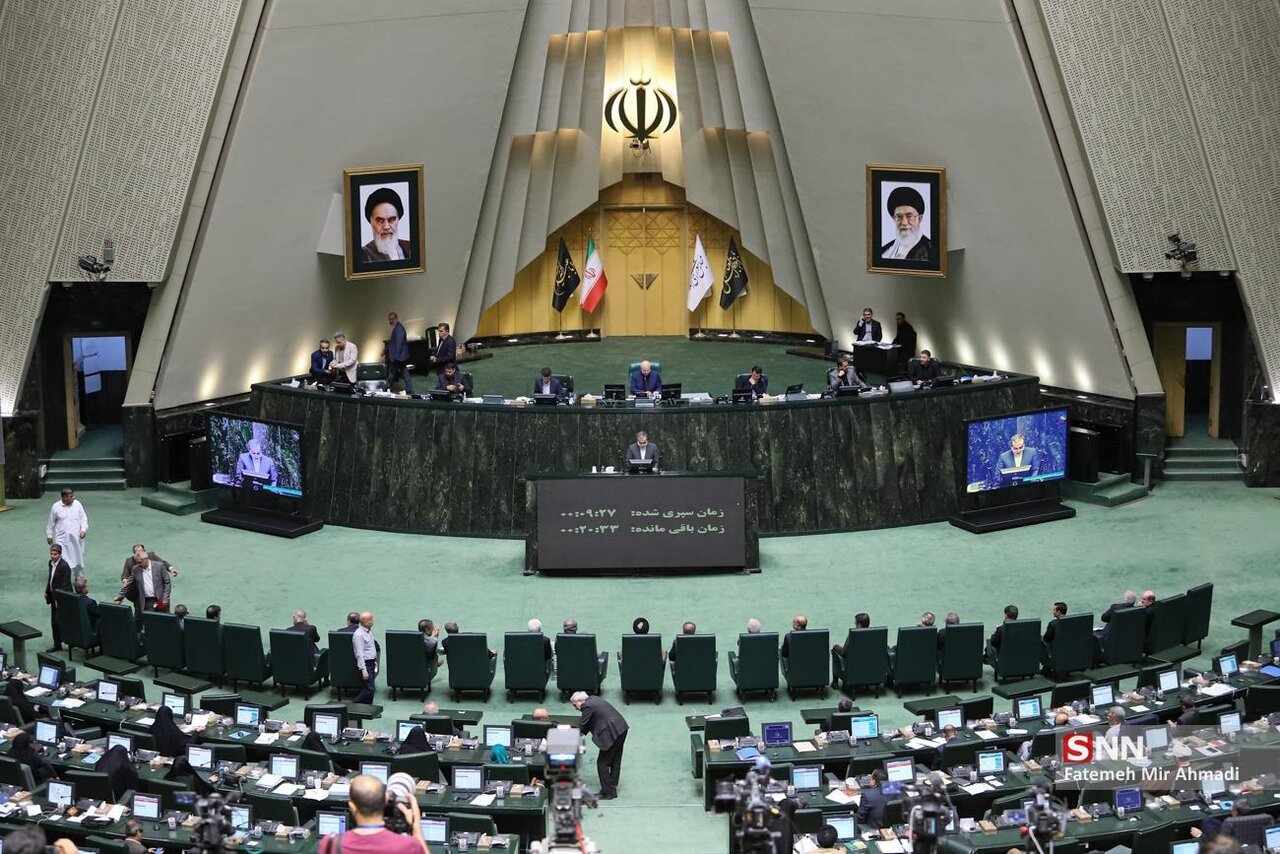More Iranian cabinet candidates face scrutiny in parliament

TEHRAN – The Iranian Parliament continues to scrutinize Masoud Pezeshkian's proposed cabinet, with the ministers of defense, roads and urban development, and industry, mine, and trade talking to lawmakers about their plans and policies on Monday.
The ministers presented their visions for their respective portfolios during the third day of evaluations.
During the open session, Brigadier General Aziz Nasirzadeh became the first proposed minister to outline his plans for the future and elaborate on his strategic vision for enhancing Iran's national security and defense capabilities. In a detailed address, he expressed gratitude to both supporters and critics within the assembly, emphasizing the importance of diverse opinions in shaping effective policies.
"The strategic depth of the Islamic Republic of Iran has changed remarkably today compared to two decades ago," Nasirzadeh stated, highlighting the evolving geopolitical landscape. He noted that these changes have opened up "a promising path for the production and reproduction of power" that enables Iran to play a significant role in regional and global affairs.
Addressing the complexities of current security dynamics, he remarked, "The conditions in the region and the world are such that environmental changes occur rapidly. New and surprising technologies are emerging, and the dynamics of regional security equations are complex and turbulent."
Nasirzadeh pointed out that the region has increasingly rejected the unipolar order led by the United States, seeking to establish a new balance of power. "The pressures from global arrogance and its allies have increased, particularly through unjust sanctions against our country," he said.
In light of recent conflicts, he emphasized the need for a robust deterrent against threats, particularly from the Zionist regime, stating, "Following the glorious Operation True Promise, efforts to strengthen our deterrence have begun." He condemned the actions of the Zionist regime in Gaza as "various war crimes" and reiterated Iran's commitment to supporting oppressed nations.
Nasirzadeh also highlighted the growing influence of the Islamic Revolution among independent nations. "The spiritual influence of the Islamic Revolution has been on the rise," he asserted, reinforcing Iran's position in West Asia and beyond.
He outlined his ministry's primary focus: "Maximizing power production will be our main special task as a symbol of power and authority." He called for innovative approaches to operational capabilities and infrastructure updates, emphasizing that understanding both internal and external strategic environments is crucial for effective policymaking.
The military figure also expressed optimism about the future: "With God's grace and under the guidance of the Leader of the Islamic Revolution, we will secure our national interests through collaboration with parliament and other state institutions."
First proposed female minister in 13 years endorsed by female lawmakers
Farzaneh Sadegh, the proposed minister of roads and urban development, began her address to parliament after female MPs voiced their support for her in a statement.
“Women should be more active in top and decision-making roles in the country. The presence of Ms. Sadegh in the cabinet will help facilitate that,” the lawmakers said, adding, “Dr. Sadegh is an experienced, seasoned, and intelligent figure who can lead the ministry well regardless of her gender.”
Iranian women have achieved remarkable educational progress in recent decades, exceeding men in university enrollment. Yet, their presence in government remains woefully limited. Women hold less than 8% of parliamentary seats, and Iran has had only one female minister. Analysts believe the gap between women's educational achievements and their representation in government should be filled.
In her remarks to the parliament, Sadegh outlined a comprehensive strategy to tackle pressing housing shortages and infrastructure challenges facing the nation. Emphasizing the critical role of the ministry she hopes to lead in the future, she stated, "All these issues underscore the growing significance of the Ministry of Roads and Urban Development."
The proposed minister also highlighted the necessity of managing housing production and supply, with a particular focus on addressing rising rental prices, dilapidated urban areas, and informal settlements. She proposed the establishment of a new deputy position or a restructuring of the ministry to create an economic framework that would support transportation and housing projects. "We must generate assets from the ministry, foster special interactions with the private sector, and attract foreign investment," she asserted.
Central to Sadegh’s vision is the completion of a robust rail network connecting north-south and east-west corridors, as well as enhancing connectivity to Bushehr port. "Developing infrastructure for transportation networks is paramount," she noted, expressing optimism that cooperation between the government and parliament will lead to significant advancements.
The proposed minister also emphasized the importance of increasing airport capacity and reducing flight restrictions to make domestic travel more economically viable. "Completing freeway and highway networks to support economic development will be one of my priorities," she declared.
Addressing border areas and coastal routes, Sadegh stated, "These routes are essential for facilitating cargo and passenger exchanges with neighboring countries." she further underscored the need for improved rural road networks, calling them "economically important but also socially significant."
To achieve these goals, she stressed the importance of leveraging non-budgetary resources and attracting non-governmental investments. "Our actions will include maximum outsourcing through sustainable commercial projects," she explained.
Safety on the roads was also a key concern for the proposed minister, who expressed that even one road traffic fatality is unacceptable. Sadegh aims for a 10% annual reduction in road casualties, stating, "Collaboration with traffic police and other sectors will facilitate this goal."
In closing, the proposed minister of roads and urban development reaffirmed her commitment to fulfilling legal obligations related to housing production, stating, "Securing suitable land for housing young people, veterans, rural residents, and workers will be among my top priorities." she expressed hope that with concerted efforts from various sectors, dignified housing can be made accessible to all citizens.
Leave a Comment